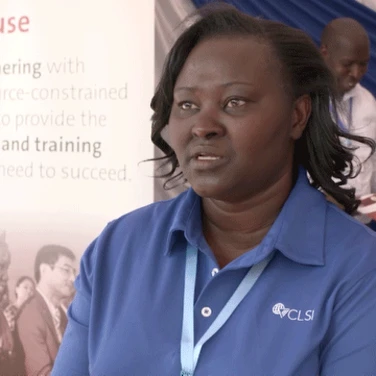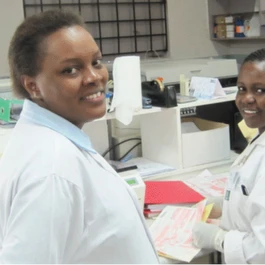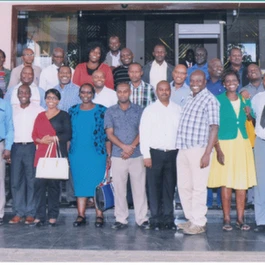Share your experience and help others understand the real-world benefits of following CLSI guidelines. Whether it's improved accuracy, enhanced efficiency, or better compliance, your story can inspire and guide fellow professionals. Submit your experience today and contribute to a global conversation on laboratory excellence!
CLSI Efforts Help Kenya Laboratories Achieve Self-sustaining Quality
Overview
Local sites earn accreditation aligned with ISO 15189 for consecutive years.
For years, Kenya has suffered some of the world's highest rates per capita of HIV, tuberculosis, hepatitis, malaria, and other infectious diseases. In addition, between 8000 and 10 000 children under the age of five are hospitalized with severe acute respiratory illness associated with influenza every year.

Overview
Local sites earn accreditation aligned with ISO 15189 for consecutive years.
For years, Kenya has suffered some of the world's highest rates per capita of HIV, tuberculosis, hepatitis, malaria, and other infectious diseases. In addition, between 8000 and 10 000 children under the age of five are hospitalized with severe acute respiratory illness associated with influenza every year.
The Situation
Although accurate diagnosis and testing are essential for identifying and managing infectious diseases, Kenya had only three accredited medical laboratories serving its population of 41 million in 2010. One example of the need: a lack of trained personnel had caused the time for receiving test results of viral load (the amount of HIV in a person's blood) to exceed 33 days. And still, most physicians did not feel confident in their accuracy.1
The Program
To address these issues, the US Centers for Disease Control and Prevention (CDC) -- through the US PEPFAR program -- supported the implementation of Quality Management Systems (QMS) in Kenya beginning in 2010.
The Kenyan government and the CDC aimed to significantly increase the number of laboratories in Kenya that could achieve and maintain international accreditation aligned with ISO 15189. Several clinical laboratory organizations, including CLSI, were selected to participate in this effort.
Over the next several years, CLSI worked to provide training and mentorship for laboratory staff at dozens of sites. By 2023, CLSI had successfully helped establish the infrastructure to host a five-day consultative workshop on Laboratory Leadership Curriculum development in Nairobi. The purpose of this workshop was to develop the key competencies for the laboratory leadership training program to transition capacity-building into local hands. CLSI was pleased to contribute to these discussions along with representatives from several other international global health organizations and leaders from countries across the continent.

The Results
Of the 10 labs originally assigned to CLSI, seven had achieved accreditation by 2016.
Because of the local mentoring and auditing capacity instituted by CLSI, 311 clinicians and laboratory staff have been trained through CLSI’s hands-on instruction, train-the-trainer education, and ongoing mentoring and monitoring.
With the help and involvement of CLSI, Kenya is continually improving the quality of its laboratories, while achieving the independence and sustainability needed to support this effort for many years to come.

Share Your Experience with CLSI Standards in your Laboratory
